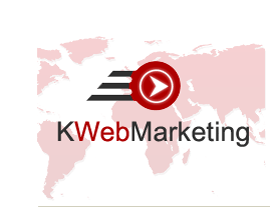|
How Does Pay-Per-Click (PPC) Work?
In this competitive world, effective marketing is the key to any successful business plan. Besides, the help of the print media (newspapers, magazines and journals) and electronic media (television), Internet is a great resource to publicize and promote their products. Today, thousands of companies use this medium to reach out to the vast majority of their customers.
|

|
|
Pay per Click is an online advertising model when the advertisers pay money for each and every ‘click’ delivered to his or her website from a link. The advertisements are served based on keywords and themes. Pay per Click is also known as ‘Cost per Click’ or CPC, ‘Paid inclusion’ ‘Paid Listings’, ‘Pay per Ranking’, ‘Pay per Placement’ and ‘Pay per Position’. This is one of the most powerful marketing tools to promote online marketing. PPC is best suited for small to medium sized businesses and also for the sectors like the hotel and travel industry and consumer goods.
The Pay per Click process thus can be defined as the guaranteed placement of a small advertisement on the search results page for a particular keyword or keywords; the payment is made only when the visitor clicks on the ad and is guided to the advertiser’s website. No amount is paid by the advertiser to appear on the results page. A Pay per Click or PPC ad on the search engine results page will usually consist of a heading that mentions the name of the website with some brief introduction; this should however not exceed 50 words or characters. It can also contain a concise explanation (not more than 200 words or characters) of the products or services offered. While there are a few PPC search engines that monitor the text which appears in the listings, others are more open to using the advertiser's own text.
The most important thing in this form of marketing is ‘keyword’ as the advertisers feel that their target audience would type the product or services they are looking for in the search bar. So if the buyer is looking for personalized baby gift items, he can type the key words “baby gifts” to get the whole range of gifts offered by the advertiser to choose from. These advertisements are known as ‘sponsored links’ or ‘sponsored ads’ and they either appear next to or above the natural or organic results on the page. Only when the visitor clicks on the
displayed ad, the advertiser pays the money to the host.
Google Adwords and Yahoo Search Marketing, formerly known as Overture are the biggest players in the market. MSN has also entered the field and has started beta testing with their own PPC services ‘MSN adCentre’. The minimum price per click starts from $1 USD and goes up to $50 USD; however, the pricing is dependent on the search engine – very popular search terms can cost much more on popular engines.
Currently the pay-per-click engines can be divided in to three categories:
-
Keyword PPC
-
Product PPC
-
Service engines
Research is on for the development of more models or categories. As mentioned earlier, this model does not fetch any revenue from site traffic or the sites using these programs; only when the visitors click on the banner ads or pop ups, income is generated.
Keyword PPC – this method includes words, phrases and even model numbers of the products. While searching for a particular product, the potential customer types a word or phrase and is steered to the relevant advertiser. ‘Keyword’ is considered to be the most important ingredient in pay-per-click advertising mode. The terms or phrases are of utmost importance to the advertisers; there are many types of software and firms that offer to help the advertisers develop these priceless terms.
According to a research conducted in 2005, the most important PPC keyword serach engines were – Google Adwords, Yahoo Search marketing, Ask Jeeves, Gazaboo.com, Miva, Kanoodle, Baidu, Microsoft adCentre, 7Search and LookSmart.
Product PPC – according to this model, the advertisers give some “feeds” about their product databases and when the consumer looks for the product, all the links of the various advertisers dealing with that product, appear on the screen. Priority is given to those advertisers who are better paymasters; nevertheless, the buyer is given the choice to select from the lowest price that is available. The popular PPC Product Search engines are – Nextag, PriceGrabber.com and Shopping.com.
Service PPC – this model too allows the advertiser to give some information about their product databases and when visitors look for a particular service, all the relevant links appear on the screen. Here too prominance is given to the advertisers who pay morebut the buyer is allowed to pick from the lowest price that is available. The popular and important PPC services are Nextag, SideStep and
TripAdvisor.
|



